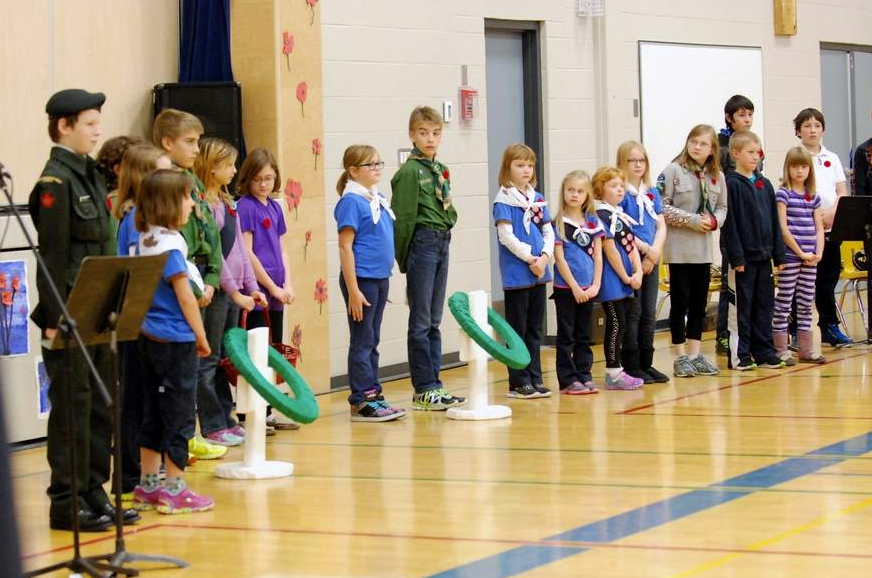Every year before or on Nov. 11, schools ask their students to put on a Remembrance Day ceremony for each other, their parents, and their community. Some parts may differ, some parts remain obligatory, but always the message is the same: “Lest we forget.”
“Those are very powerful words,” said Cory Popoff, principal of Humboldt Collegiate Institute (HCI). “We need to formally recognize the sacrifice our (past and present) soldiers underwent to ensure our freedom as a country.”
This year marks the 100th anniversary of the outbreak of the First World War, and now there are no living veterans to bear witness to the horrors of that time, or the lessons humanity should learn from that ordeal. As such, it’s up to traditions and ceremonies like these to keep those memories alive.
“I think (students) have to realize the freedoms we have are directly connected to the sacrifice made and continue to make for our country,” said Popoff. “They have to understand why we fight for what we feel is right … not only to pay homage to the past, but also pay homage to what is good and right in our country.”
Both HCI and elementary schools such as the Humboldt Public School make their students a part of the ceremonies so as to maintain a connection to the core of the message. At every ceremony and at every school, it is always commenced with the national anthem.
This year, older and younger students recited important literature such as In Flanders Field by John McCrae. A student at both ceremonies also played the Last Post, followed by a minute of silence. Local veterans attended both ceremonies.
“I think it becomes even more powerful when we have vets attend,” said Popoff. “These are the ones that put everything on the lines for our country.”
To continue the theme of remembrance, the school curriculum encompasses the wars as part of Canadian history. Moreover, Popoff said it’s important that the students also learn about current events so as to study their effects on Canada and its culture.
“In a general sense, (soldiers) are still fighting for what’s good and right in our country and in our world,” he said. “For our students, it’s important for them to look at current events through a critical lens and explore their effects on Canada and even the world.”
Popoff said that while they are still teaching students history and the effects it’s had on the present, they are also trying to teach them to reserve judgment until they understand what’s going on. Fighting doesn’t mean anything unless one is standing up for what he or she believes in. By reserving judgment, students can determine when fighting is necessary to stand up for they believe in. According to Popoff, sacrifice isn’t about just laying down your life for your country; it’s about putting aside your own personal feelings for something greater than yourself.
“I guess a qualifier is that what you’re standing up for is good and right,” he said.
Despite the passing of time, the hope is that these ceremonies will keep those memories of sacrifice alive while also teaching students lessons for the future. The words “lest we forget” are about more than just sacrifice. It’s about remembering the lessons learned.




